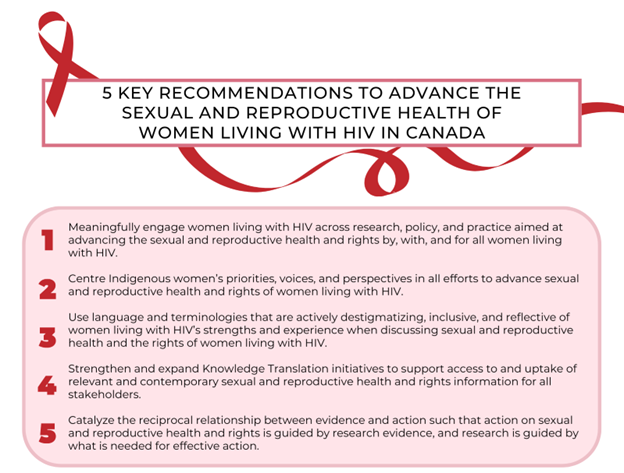Concerned about how seeing images of Black people dead and dying would affect young social media users, I conducted a study to understand how digitally mediated traumas were impacting Black girls’ mental and emotional wellness.
Read MoreAs the year comes to an end, we’re sharing the most-read articles this year, featuring contributions from authors from a wide range of disciplines, from publishing advice and research integrity to ethnographic reflections.
Read MoreIn a recent study published in the International Journal of Surgical Pathology the authors have described the histologic changes in the testis of individual seeking male to female physical adaptation.
Read MoreIn our free monthly webinar series, we receive hundreds of questions from attendees and we try to answer as many as possible during the webinar. We selected a few of the most common questions regarding Open Access, and here is what our experts had to say.
Read MoreAs the global population grows, older adults (age 65 years or older) will also increase in size, along with cases of Alzheimer’s disease and related dementias (commonly referred to as dementia). Age is one of the most significant risk factors for dementia, but numerous other risk factors exist
Read MoreIn our free monthly webinar series, we receive hundreds of questions from attendees and we try to answer as many as possible during the webinar. We selected a few of the most common questions regarding how to write an article, and here is what our experts had to say.
Read MoreParticipation in activities and access to places outside of the home can promote and maintain health and well-being for all of us, including older adults living with and without dementia.
Read MoreThe Research Hive is a dedicated space within the University of Sussex Library, created especially for researchers. Supported by SAGE Publishing, it allows researchers the possibility of engaging with other members of the community at the university. This year, the Sussex Research Hive Scholars are Georgia, dyuti and Andrea! Below there is a quick introduction to get to know them a bit better followed by some of the events, blogs and activities they have organised so far!
Read MoreOne goal of long-term care (LTC) services is to support heavy caregiving responsibilities of caring for people with dementia. Our research examined 10,000 caregivers’ health utilization and costs in Taiwan and found that providing multiple LTC services for people with dementia significantly benefits their caregivers.
Read MoreSAGE Publishing Asia Pacific organized an intimate Q&A with Professor Yu Xie - find out what he had to say about the importance of research methods in sociology and much more.
Read MoreIn our free monthly webinar series, we receive hundreds of questions from attendees and we try to answer as many as possible during the webinar. We selected a few of the most common questions regarding peer review, and here is what our experts had to say.
Read MoreWhen I was asked to share from my classroom in Sam Jones's Great FE Teaching I leapt at the chance. Not because I believed I had a special way to teach but that this book could serve as a way for teachers to observe others practice without the need to arrange cover or time.
Read MoreThe November/December 2022 supplement of Public Health Reports, “Innovative Approaches to COVID-19 Case Investigation and Contact Tracing,” provides firsthand examples of how health departments across the United States pivoted and innovated, trained new contact tracers, incorporated new community partners, and developed innovative digital tools.
Read MoreIn our free monthly webinar series, we receive hundreds of questions from attendees, and we try to answer as many as possible during the webinar. We selected a few of the most common questions regarding how to select a journal, and here is what our experts had to say.
Read MoreHistorically, women’s experiences and priorities have been under-represented in the HIV narrative, especially when it comes to their sexual and reproductive health and rights. However, there are ways that we can take action to change this narrative.
Read MoreAs the Associate Managing Editor for SAGE Open, I have noticed some common mistakes that slow down a journal’s initial checks as well as our ability to find suitable reviewers for manuscripts. Take a look at the following six common submission mistakes to help improve turnaround times for your next submission to a SAGE journal.
Read MoreMinority and marginalised groups have historically been underrepresented in conventional modes of academic research where the balance of power sits with researchers rather than those participating in the research.
Read MoreIn special education research, people with disabilities are often discussed solely as recipients of intervention, who passively participate in school environments designed to help them “overcome” their stigmatized disability labels. When people with disabilities are framed in this way, teachers, researchers and larger nondisabled communities miss something important: the identity development processes of people with disabilities, and the importance of self- and community advocacy in that process.
Read MoreIndia presents a rich context for research on work and employment, epitomising the paradox of being the world’s fifth biggest economy but one where 92.4% of the workforce is informal – insecure, unprotected, poor – and women and disadvantaged groups most vulnerable.
The work and employment scenario is characterised by ‘jobless growth’, development rooted in rising informalisation of the workforce, low productivity juxtaposed with some niche high-growth sectors, high levels of poverty in agriculture, and low female participation in the workforce. Social relations of gender, caste, ethnicity and religion intersect with material relations, further reinforcing existing inequalities in the labour market and at the workplace. It is in this context of informalisation and fragmentation of labour that working lives in India need to be examined.
Read More


















